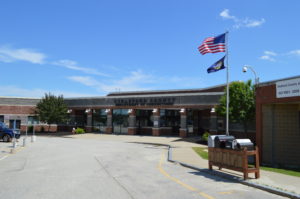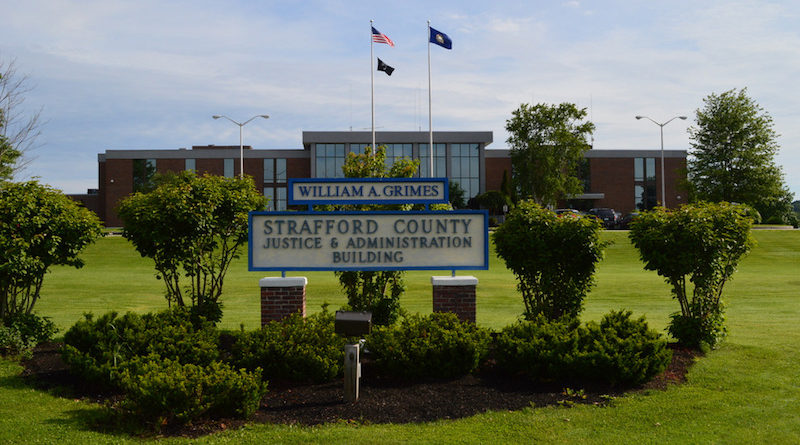Strafford County House of Corrections Implements New Inmate Assistance Programs
By Rachel Leber
DOVER, N.H. — The Strafford County House of Corrections (SCHC) in Dover started three new inmate assistance pilot programs in September. The pilot programs are in collaboration with three local nonprofits and include one program for incarcerated inmates and two programs designed to prevent inmates from returning to prison.
The first program is an intensive voluntary eight-week intensive outpatient services program (IOP) for inmates suffering from addiction-related and mental health issues. This program is a collaboration with the Southeastern New Hampshire Alcohol & Drug Abuse Services in Dover, which is located right next to SCHC, according to Carrie Lover Conway, MSW, criminal justice programming coordinator at SCHC.
The IOP program consists of classes that take place three hours a day, three days a week for the duration of the eight-week program. Additionally, each individual is allotted one hour per week of individual counseling. SCHC is piloting the first program in the women’s unit with seven women, the class size to remain about the same moving forward, according to Conway. The program will not cost the county any money to run as the program is state-funded.
The second pilot program is a voluntary education program in collaboration with the SOS Recovery Community Organization (SOS) in Dover. This program will be offered to inmates 30 days before release. SOS approached the SCHC and asked if they could implement this program, and SCHC was very happy to do so, according to Conway. Inmates participating in the program will receive training to use naloxone as well as a naloxone kit to take with them upon release.

Additionally, the program will give inmates the support of SOS staff as well as peer support in the community upon release. “When these inmates are released, we don’t want them go back to their old scenes and situations that landed them in jail in the first place,” said Conway. “The goal of the program is to offer them resources and reintroduce them to new friends with sobriety once they are released.”
The final program is the Medication Assisted Treatment Re-Entry Program (MAT) and is a collaboration with the Portsmouth-based Families First Health and Support Center. This program offers injections to released inmates to help them recover from drug addiction. The MAT program began its initial iteration in the spring, offering Vivitrol injections prior to release for opiate addicts.
The program includes consult with a nurse and a substance abuse counselor from the Families First’s mobile health team prior to release, with immediate follow-up with a primary care physician in the community. The initial iteration of the program in the spring showed the county that this service was needed for many different drugs — and not just opiates — which is what the newer pilot program is seeking to do.
“We do a lot of pilot programs in this county,” said Conway. “There is a great deal of state engagement throughout the process in terms of what is working and what is not. With this, we always hope to learn a lot from these pilot programs and shift things going forward accordingly.”
With approximately 420 inmates inhabiting the jail at any given time, the county is hoping to make a real difference when it comes to serving those affected, and are always working towards coming up with solutions to this major problem, according to Conway. “Thank goodness we have the supportive [county] administration that we do, who recognize that we have a problem, and are willing to do something about it,” said Conway. “The attitude of our staff and of the state is very much ‘let’s get creative and do something different.’”

